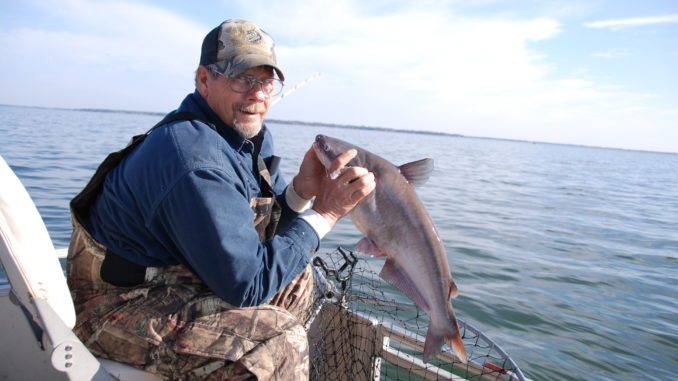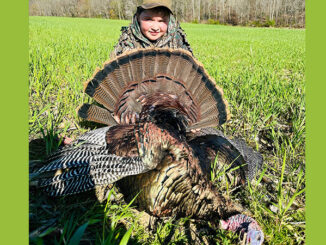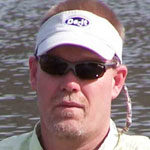
In recent years, the Santee Cooper lakes’ population of blue catfish has experienced a decline due to almost a decade of poor reproduction. Though no single reason has been identified, below-average water flow from around 2004 through 2011 has likely contributed. It is clear there are big challenges to this resource.
“Blue catfish are not a gamefish in South Carolina and it’s never been managed as a gamefish,” said Scott Lamprecht, an SCDNR fisheries biologist. “But to manage the resource, we need to put some kind of limit on it, and right now, we have none — with the exception of allowing only one fish over 36 inches (per angler, per day).”
To address the issue, SCDNR held a series of interest meetings this past September. Meetings were tailored for the three major catfish user groups: commercial cat fishermen, fishing guides and the general angler population.
“We presented our data, which makes it pretty clear that given the reproductive rate, we’ve been overfishing the system, and we’re going to have to curtail harvest. That’s our message we tried to get over to the people,” Lamprecht said. “The general consensus was everybody should share equally in that sacrifice. We got good feedback from each group, and I think most everyone understands the situation. Some of the commercial guys have some really good ideas in terms of future limited entry into commercial license. Other ideas from the anglers and guides was a numbers limit, either per person or per boat, and a reduction in the individual lengths from 36 inches down to some smaller number.”
Lamprecht could not discuss specifics, but offered that the next step, given that SCDNR has no regulatory authority over setting fish and game laws, was to put together a recommended proposal to the state legislature.
“We’re going to come up with a draft recommendation,” Lamprecht said. “The recommendation may not entail exactly every point that was suggested in our meetings, but we need to get behind one thing will be good for everyone and that has some teeth in it, and we need to pass it for the health of this great fishery.”





Be the first to comment